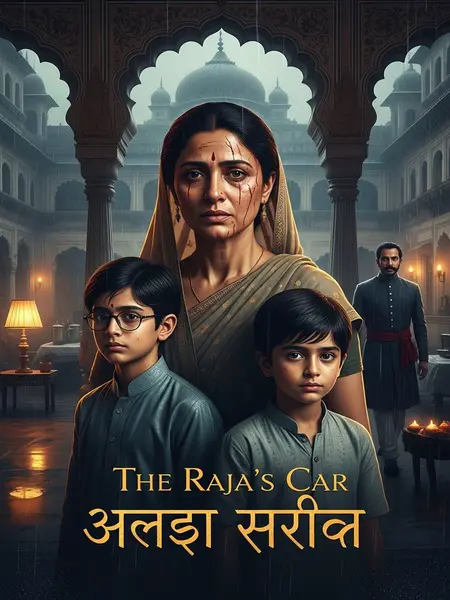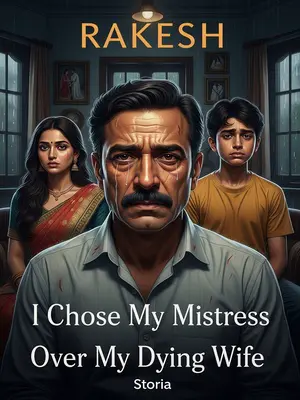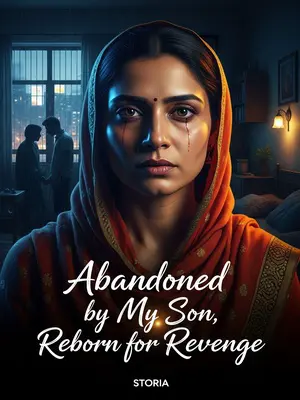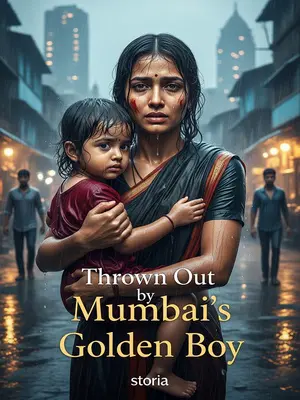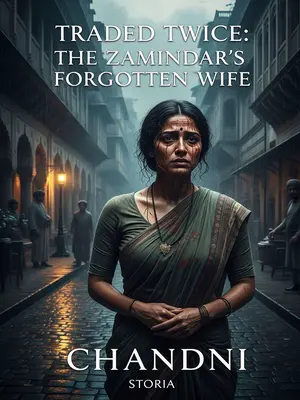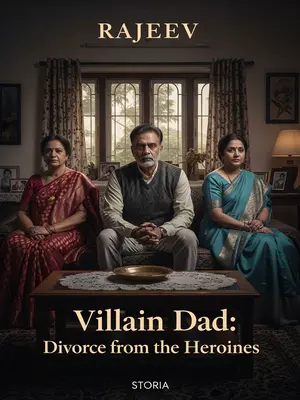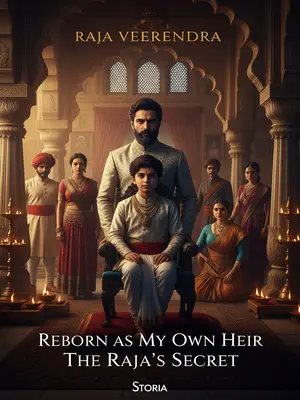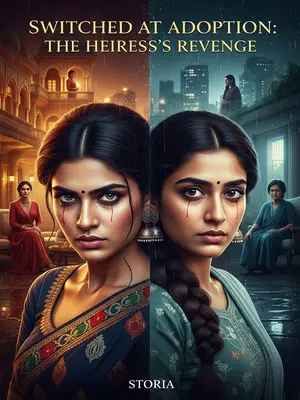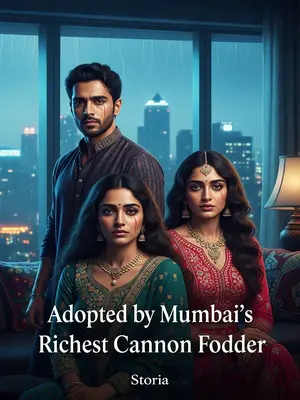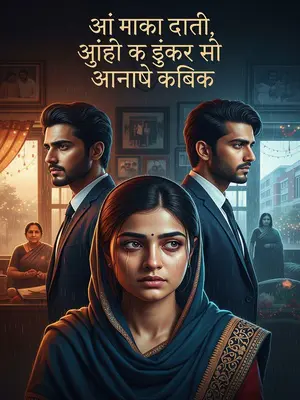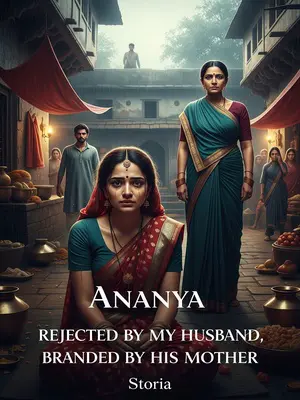Chapter 8: Reunion and Farewell
In the past two years with Major Pratap, I’d grown less tolerant. I gasped, almost crying from the pain.
"Arjun!" Rajveer stood up, his gaze sharp. Arjun seemed frightened, helplessly staring at the blood on my hand.
The tension in the room spiked. For a moment, even Rajveer seemed to forget his anger, moving toward me with genuine concern.
Rajveer helped me up, bending as if to carry me on his lap to tend the wound.
He reached for me, but I pulled back, wary of old memories and older wounds.
I quickly pulled away, clumsily pressing the embroidered handkerchief to my palm. "No need, Raja-saheb. It’s just a small wound. It doesn’t hurt. I’ll take care of it at home."
My words were formal, distant. The lines between us had been redrawn in blood long ago.
The atmosphere froze. After a long silence, Rajveer let go of me, his expression unreadable.
The silence stretched, broken only by the tick of the clock and the faint chirping of birds outside.
He was too proud a man to ask me to stay.
At dawn, as I wished, I left the Raja’s bungalow. The car sped along, and some porcelain shards were so fine that picking them out made me break into a cold sweat.
My hands shook as I pried the fragments free. The city’s skyline emerged from the fog, and for a moment I allowed myself to breathe.
At home, I was glad Aarav had gone to school early and wouldn’t be upset about my injury.
But as soon as I turned, I saw Major Pratap leaning against the door, his tall figure standing in the morning light, still in his army uniform, travel-worn.
His boots were muddy, his hair dusted with travel. I barely recognised him, but relief flooded through me. I wanted to run to him, but my injured hand ached.
Without a word, he picked me up and carried me inside. My injured hand rested on his shoulder and began to ache. My eyes reddened, and I gently buried my head in his embrace.
His arms, strong and warm, made me feel safe—like nothing in the world could harm us as long as we were together. I let out a shaky breath.
The morning fog slowly cleared outside the window.
Lucknow’s rooftops gleamed in the gentle sunlight, the peepal tree in our lane rustling as if blessing our small family.
Watching Major Pratap half-kneel to re-bandage my hand, I was afraid I’d cry, so I changed the subject: "Why are you back so early? Is the posting done?"
He worked silently, his hands surprisingly gentle. Only after the bandage was secure did he answer.
Major Pratap was silent for a while, then said that the soldiers from the Eastern Cantonment might soon be transferred to the Sundergarh border.
Sundergarh?
The word tasted of distant sands and unfamiliar customs. I tried to imagine life there, so far from the city I’d finally begun to call home.
The Eastern Cantonment had always been the chief of the four city garrisons, essential for guarding the capital. Why was it suddenly being reassigned to the northwest?
A heaviness filled the room. Even the pigeons outside seemed to sense the change in our fortunes.
Major Pratap was discreet. Since this involved government affairs, he could not explain much, only saying it might be related to Rajveer.
But thinking about it, I could guess most of it.
The Maharaja had ascended the throne young, relying heavily on Rajveer, and struggled repeatedly to consolidate his own power. Now that the Maharaja was in his prime, and with Prince Amar in the north secretly supporting him, it was likely he wanted to begin curbing Rajveer’s influence by moving border troops.
Politics was a game for kings, but its ripples tossed even the smallest boats. I thought of the Raja’s cold eyes and shivered.
Major Pratap wasn’t worried about this. By regulation, soldiers like him could bring their families to the northwest. But the conditions there were harsh, with yellow sand everywhere; he feared Aarav and I wouldn’t adapt.
He squeezed my hand, his own uncertainty hidden behind a stoic expression. “There’s no hospital nearby,” he said softly. “No schools like here.”
If we stayed in the city…
Major Pratap looked at the wounds on my hand and forehead, his brows deeply furrowed.
His silence was heavy with the things he could not say. The ceiling fan clicked above us, marking the passage of time.
I knew what he was worried about and told him, "A family should always be together."
No matter how hard life was in the northwest, with him by my side, I was not afraid.
He nodded, his relief palpable. The world outside might be unforgiving, but inside this home, we had each other.
Major Pratap looked at me deeply, then suddenly embraced me tightly, his broad chest trembling with a low, muffled sound.
His hug was rough, almost desperate. I clung to him, letting my tears soak his uniform for just a moment.
"I’m sorry."
He had not fulfilled his promise of peace and prosperity when he married me.
I shook my head. Without him, I would have died on that rainy night two years ago. He gave me shelter from the storm, a home where I no longer feared being cast out. That was enough.
That evening, when Aarav learned we would go to the northwest as a family, he was overjoyed. Though the date wasn’t set, he rummaged through boxes, muttering about which books to bring.
He babbled about the new things he’d see—camels, maybe, or desert festivals. The house filled with his excitement, his laughter echoing in every corner.
When saying goodbye to his friends outside, he cheerfully said, "Papa, Maa, and I are leaving. In the future, I won’t be able to help you copy notes anymore."
The other children groaned, but wished him luck. Aunty Lata sent us off with extra barfi, wiping her eyes on the end of her sari. “Allah rakhe, beta. May you always be happy together.”
I smiled softly, going out to call him back for dinner.
My heart swelled with both pride and sadness. I wondered if this new place would finally give us peace.
Suddenly, someone tugged my sleeve from behind. Startled, I turned around.
The sun had almost set, the sky awash with colours. I turned, expecting to see Aarav, but my breath caught in my throat.
In the early spring dusk, Arjun had snuck out of the bungalow wearing only a single layer, grass still clinging to his hair. Hearing Aarav’s words, his face was pale, his sick, reddened eyes shimmering with tears.
He looked lost, vulnerable in a way I’d never seen before. The shadows lengthened, the city’s noise fading as I waited for him to speak.
"Where are you going?"
His voice was thin, barely more than a whisper, but in it I heard the ache of a child still searching for his mother.
